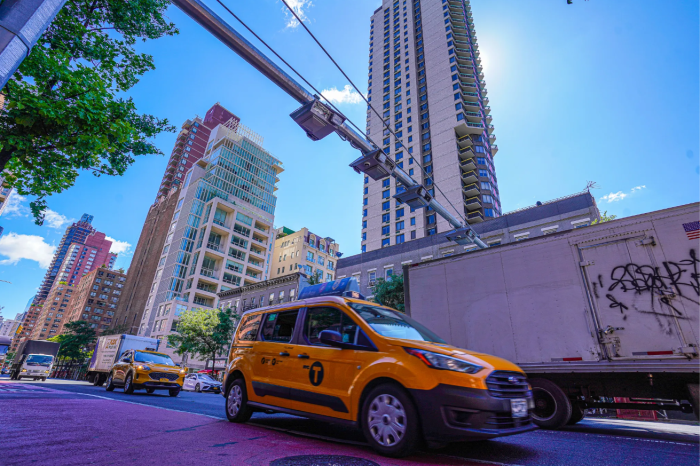Albany moved closer Tuesday to putting “doomsday” on hold for perhaps another year or two, if we are lucky. It looks like the subway and buses will dodge service cuts and sharp fare increases of about 25 percent. The harsh regressive tax that the state Senate had not taken seriously enough will be reduced to about 10 percent under a deal announced Tuesday night.
The payroll tax on the city and downstate suburbs provides a steady revenue stream for the system’s capital budget, and is so small — 34 cents on every $100 in salary — that it should not hurt New York’s economy. Even people in suburban towns who never come to the city or use the commuter rails nevertheless benefit from mass transit because their homes are far more valuable because their neighbors commute.
The 50-cent surcharge on New York City taxis could be a good way of cutting down on traffic and pollution. Thankfully, this fee will help keep the subways running and not be siphoned off to repair Upstate roads, encouraging more pollution as it would under one Senate plan. While we are all for safety and maintenance work on roadways, money for these projects should compete against other state priorities.
Assembly Speaker Sheldon Silver had a better plan to provide a stronger revenue source to fund subway and bus expansion — bridge tolls along with the payroll tax. But Senate Majority Leader Malcolm Smith’s leadership deficiencies prevented Silver’s plan from passing. Even one of Smith’s strong backers in the Senate acknowledged to us that that the majority leader waited far too long to try and get Republican support for a rescue plan. With a razor-thin, one-seat majority, Smith put straphangers at the mercy of any shortsighted Democratic state senator, and unfortunately there are a few.
Silver tells us there will be enough money in the capital budget to keep the basic maintenance and existing capital projects going. He said there will likely be a need for more capital revenue sources in two years, but that assumes the economy and the M.T.A.’s revenue projections don’t get any worse. Governor Paterson and Silver fought hard to put the transit system on sounder financial footing, but they were forced to kick the can down the road because of the obstinate Senate. It is appalling that even with a doomsday deadline threatening one of the city’s most valuable assets, Albany was incapable of more than a stopgap measure.
Leaders once again passed on an opportunity to grow our economy by expanding mass transit while simultaneously reducing our carbon footprint. Some type of traffic pricing is the only way to accomplish both at the same time.
Our Downtown senators, Daniel Squadron and Tom Duane, have been on the right side of this issue, but we have to wonder if their staunch loyalty to Smith accomplished much. Last year, Mayor Bloomberg surely had some Republican Senate support for a better plan — congestion pricing. Given Bloomberg’s generous support for Senate Republicans, the makings of a better, more secure rescue plan could have been possible had Smith acted earlier and creatively.
There are other good ideas to reduce pollution and traffic, which damage people’s health and cost business money in lost time. Market-rate parking fees and higher vehicle-registration fees for gas guzzlers are just two. Legislators should not wait a year or two to take these matters up again — a day or two would be more like it. We see how badly Albany performs on deadline.



































